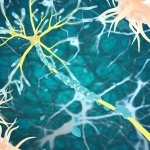The new technique involves engineering blood stem cells into insulin-secreting cells.
Scientists have made a stem cell breakthrough that could make it possible to treat diabetics with an annual insulin jab, eliminating the need for painful daily injections.
The new technique involves engineering blood stem cells into insulin-secreting cells.
Experts at London’s Imperial College, led by Professor Nagy Habib, and scientists at Hammersmith Hospital are now planning human trials of the new treatment after success in laboratory studies, the ‘Daily Express’ reported.
“This is a fantastic breakthrough that we hope will end the burden of daily jabs for diabetics,” said Dr Paul Mintz, a leading stem cell researcher at Imperial College, who is part of the team pioneering the research.
“The beauty of this treatment is that we manipulate the patient’s own stem cells, avoiding the complication of giving them something foreign which their body will reject,” he said.
In diabetes the pancreas fails to make any insulin which crucially controls blood sugar levels or it doesn’t make enough.
In laboratory studies, the researchers were able to get 35 per cent of engineered cells to make insulin.
They are now planning to nurture and grow these cells so they have a colony of 100 per cent insulin-making cells that can be injected into a patient’s body.
The team is working to develop stem cells that could release insulin for up to a year by coating the cells in a special biodegradable matrix.
The study was published in the Journal of Molecular Therapy Nucleic Acids.







